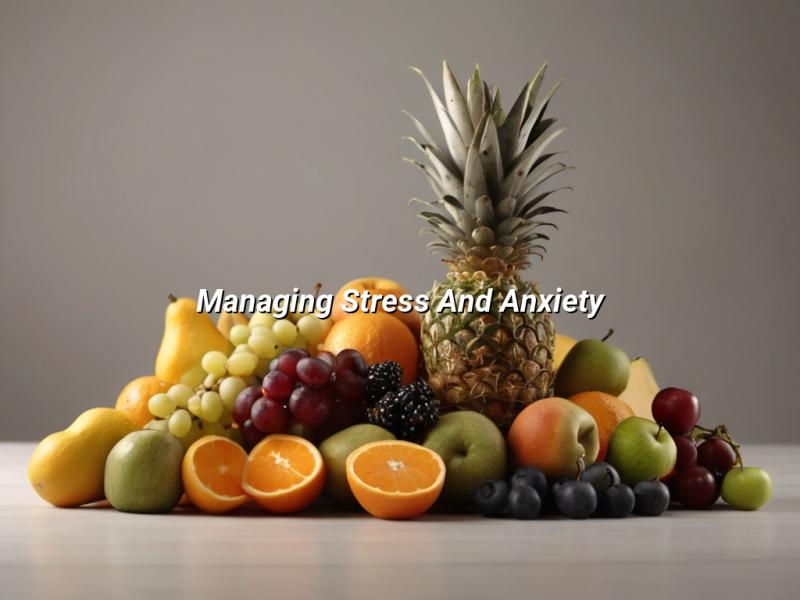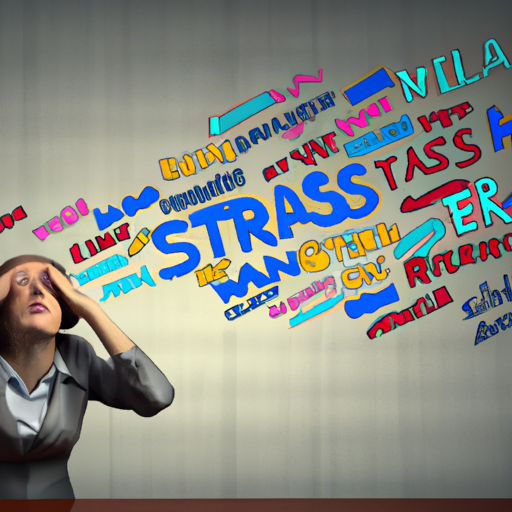Managing Stress And Anxiety

How to Use Mindfulness to Manage Stress and Anxiety
Are you feeling overwhelmed by stress and anxiety? You’re not alone. In today’s fast-paced world, it’s easy to get caught up in the hustle and bustle of life and forget to take a step back and take care of yourself. Fortunately, there’s a simple and effective way to manage stress and anxiety: mindfulness.
Mindfulness is the practice of being present in the moment and focusing on your thoughts, feelings, and sensations without judgment. It’s a way to become aware of your thoughts and feelings without getting caught up in them.
Here are some tips to help you get started with mindfulness:
1. Take a few moments each day to sit quietly and focus on your breath. Notice the sensations of your breath as it moves in and out of your body.
2. When you notice your mind wandering, gently bring your attention back to your breath.
3. Notice any physical sensations in your body, such as tension or relaxation.
4. Notice any thoughts or emotions that arise without judging them.
5. If you find yourself getting caught up in a thought or emotion, take a few deep breaths and focus on the present moment.
By taking a few moments each day to practice mindfulness, you can learn to become more aware of your thoughts and feelings without getting caught up in them. This can help you manage stress and anxiety more effectively.
So, take a few moments each day to practice mindfulness and see how it can help you manage stress and anxiety. You’ll be surprised at how much better you’ll feel!
The Benefits of Exercise for Reducing Stress and Anxiety
Exercise is a great way to reduce stress and anxiety. It can help you to relax, clear your mind, and boost your mood. Here are some of the benefits of exercise for reducing stress and anxiety:
1. Improved Mood: Exercise releases endorphins, which are hormones that make you feel good. This can help to reduce stress and anxiety and improve your overall mood.
2. Increased Energy: Exercise can give you more energy and help you to feel more alert and focused. This can help to reduce stress and anxiety and make it easier to manage your day-to-day tasks.
3. Improved Sleep: Exercise can help you to sleep better, which can reduce stress and anxiety.
4. Improved Self-Esteem: Exercise can help to boost your self-esteem and make you feel better about yourself. This can help to reduce stress and anxiety.
5. Improved Concentration: Exercise can help to improve your concentration and focus, which can help to reduce stress and anxiety.
Exercise is a great way to reduce stress and anxiety. It can help to improve your mood, energy, sleep, self-esteem, and concentration. So, if you’re feeling stressed or anxious, try to get some exercise and see how it can help.
The Role of Diet in Managing Stress and Anxiety
We all know that what we eat can have a huge impact on our physical health, but did you know that it can also affect our mental health? Eating a healthy, balanced diet can help us manage stress and anxiety.
When we’re feeling stressed or anxious, it’s easy to reach for unhealthy comfort foods like chips, cookies, and ice cream. But these foods can actually make us feel worse in the long run. Eating too much sugar can cause a spike in energy followed by a crash, leaving us feeling even more drained and anxious.
On the other hand, eating a balanced diet full of nutrient-rich foods can help us manage stress and anxiety. Eating plenty of fruits and vegetables, whole grains, and lean proteins can help us feel more energized and balanced. These foods provide essential vitamins and minerals that can help us stay focused and alert.
It’s also important to stay hydrated. Drinking plenty of water can help us stay alert and focused, and it can also help us feel more relaxed.
Finally, it’s important to limit our intake of caffeine and alcohol. While these substances can provide a temporary boost of energy, they can also lead to increased feelings of stress and anxiety.
Eating a healthy, balanced diet can help us manage stress and anxiety. By eating plenty of nutrient-rich foods, staying hydrated, and limiting our intake of caffeine and alcohol, we can help keep our minds and bodies healthy.
The Power of Positive Thinking to Reduce Stress and Anxiety
We all know that life can be stressful and anxiety-inducing at times. But did you know that positive thinking can help reduce stress and anxiety? It’s true! Positive thinking can be a powerful tool to help you manage your stress and anxiety levels.
Positive thinking is all about focusing on the good in life and looking for the silver lining in any situation. It’s about believing that things will work out and that you can handle whatever comes your way. It’s about having faith in yourself and your abilities.
When you focus on the positive, you’re more likely to stay calm and relaxed in stressful situations. You’re also more likely to take action and find solutions to problems. This can help reduce your stress and anxiety levels.
Positive thinking can also help you stay motivated and focused on your goals. When you’re feeling overwhelmed, it can be easy to give up and feel like nothing will ever change. But when you focus on the positive, you’re more likely to stay motivated and keep going.
Finally, positive thinking can help you build resilience. Resilience is the ability to bounce back from difficult situations and keep going. When you focus on the positive, you’re more likely to stay strong and keep going even when things get tough.
So, if you’re feeling stressed or anxious, try focusing on the positive. Look for the silver lining in any situation and believe that things will work out. Believe in yourself and your abilities. Stay motivated and focused on your goals. And build resilience by staying strong and keeping going even when things get tough.
Positive thinking can be a powerful tool to help you manage your stress and anxiety levels. So, give it a try and see how it works for you!
How to Create a Support System to Help Manage Stress and Anxiety
We all experience stress and anxiety from time to time, and it’s important to have a support system in place to help us manage it. Having a strong support system can make a huge difference in how we cope with stress and anxiety. Here are some tips for creating a support system to help you manage stress and anxiety.
1. Reach out to friends and family.
The first step in creating a support system is to reach out to your friends and family. Let them know that you’re struggling with stress and anxiety and that you need their support. Ask them to be there for you when you need to talk or just need a listening ear.
2. Join a support group.
Joining a support group can be a great way to find people who understand what you’re going through. You can find support groups online or in your local area. These groups can provide a safe space to talk about your struggles and get advice from others who have been through similar experiences.
3. Seek professional help.
If your stress and anxiety are becoming too much to handle on your own, it’s important to seek professional help. A therapist or counselor can provide you with the tools and strategies you need to manage your stress and anxiety.
4. Practice self-care.
Self-care is an important part of managing stress and anxiety. Make sure to take time for yourself each day to do something that brings you joy. This could be anything from reading a book to taking a walk in nature.
Creating a support system to help manage stress and anxiety can be a great way to cope with difficult emotions. By reaching out to friends and family, joining a support group, seeking professional help, and practicing self-care, you can create a strong support system to help you manage stress and anxiety.





